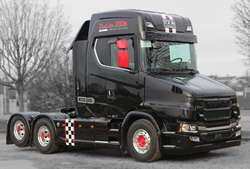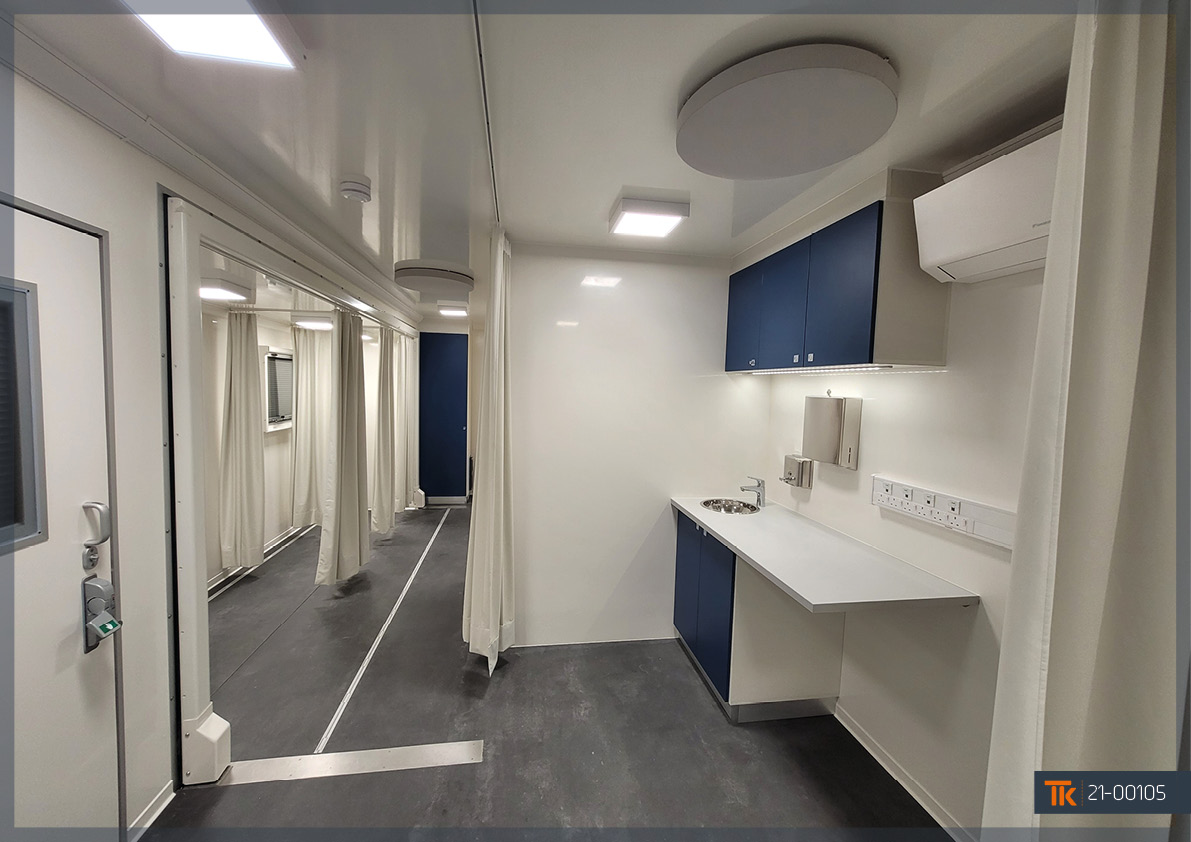According to a study published in 2022 by the World Obesity Federation, around 60% of Saudi Arabia's adult population is overweight, 20% of whom are obese. This is one of the highest rates in the world. Diabetes also affects more than 24% of the population, while malnutrition remains a major problem among children.
In response to these public health challenges, the Saudi government has launched a "national plan to combat diabetes and obesity", which includes the order for these three mobile clinics.
Design and manufacture of three mobile clinics
These mobile clinics on wheels are totally autonomous (thanks to the installation of a 40kwa generator), and travel to the most remote regions to carry out consultations, screenings and prevention activities for populations far from the big cities.
Ergonomically and functionally designed, these versatile health mobile units comprise an entrance, a waiting room, a medical secretariat, a cabin for audiometric examinations, an analysis laboratory area, a blood sampling area with two sampling stations, a doctor's office with examination couch and toilets for taking samples.
To increase usable volume and enhance comfort for patients and staff alike, these mobile clinics feature a one-meter hydraulic side extension that deploys during stops.
In terms of accessibility, a hydraulic tailgate facilitates access to the mobile unit for people with reduced mobility.
A large external awning can also be deployed to provide shade and coolness for the population waiting outside the clinic.
A special feature? Yes !
What's special about these mobile clinics is that they're wider than average. Inside, they are 2.85 meters wide, i.e. 47cm wider than semi-trailers circulating in France. These mobile units had to be transported to the port by special convoy.
-
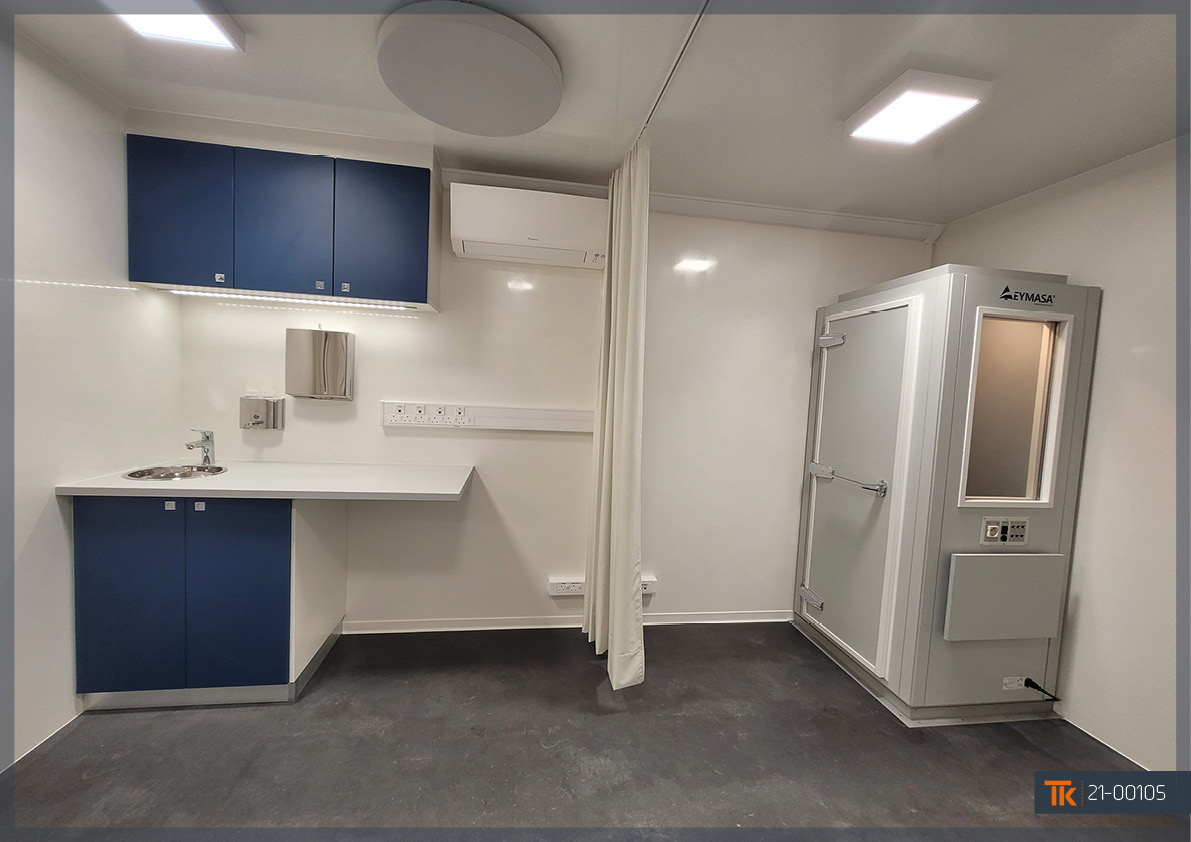
Audiometric cabin in a semi-trailer to bring hearing tests as close as possible to the field -
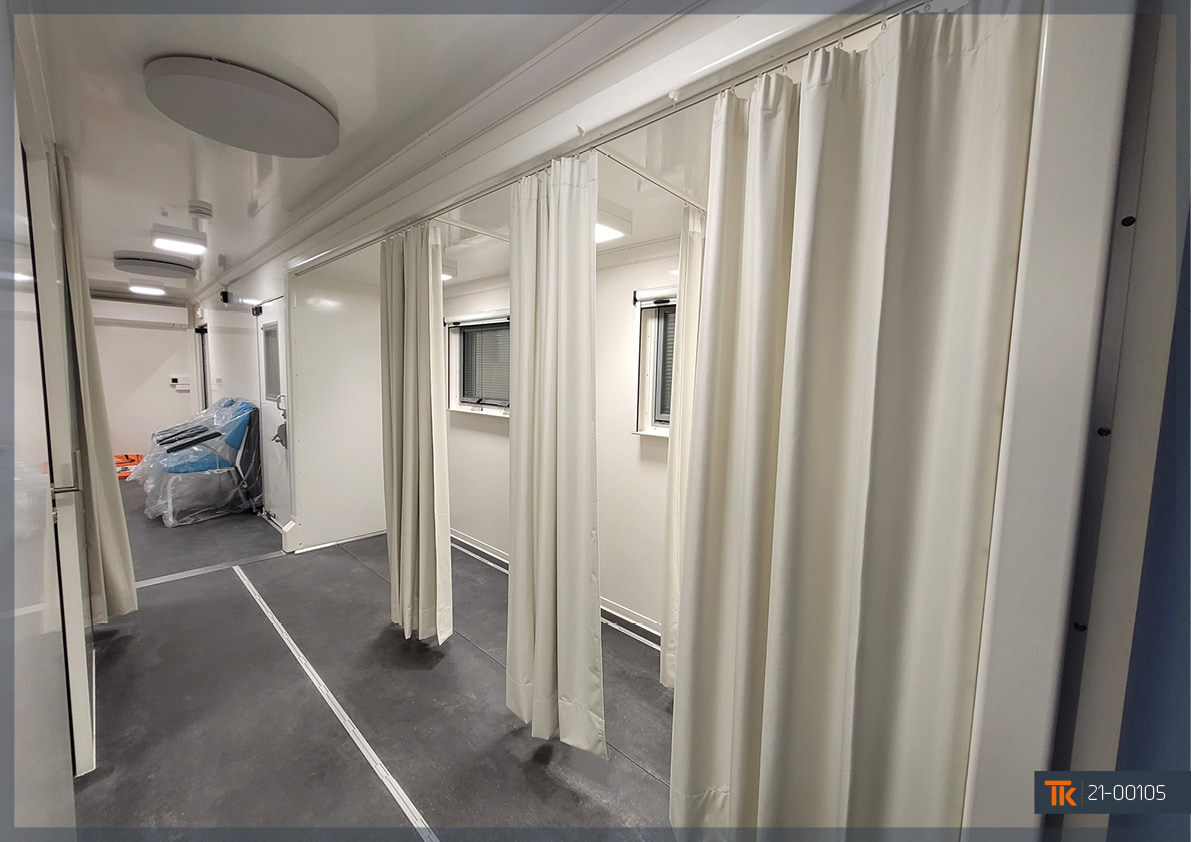
Multidisciplinary mobile clinics to prevent and screen for malnutrition, diabetes... -
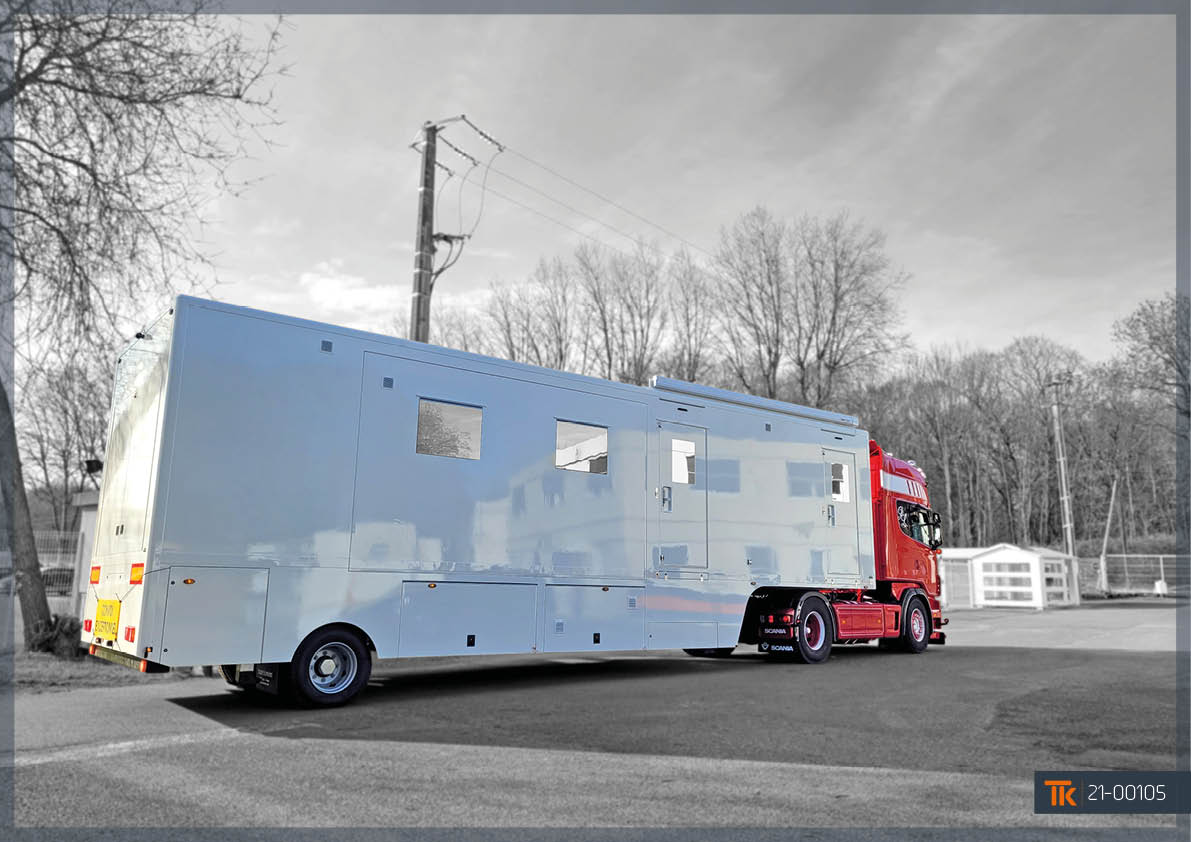
Extra-dimension mobile clinics on their way to Saudi Arabia via a special convoy -
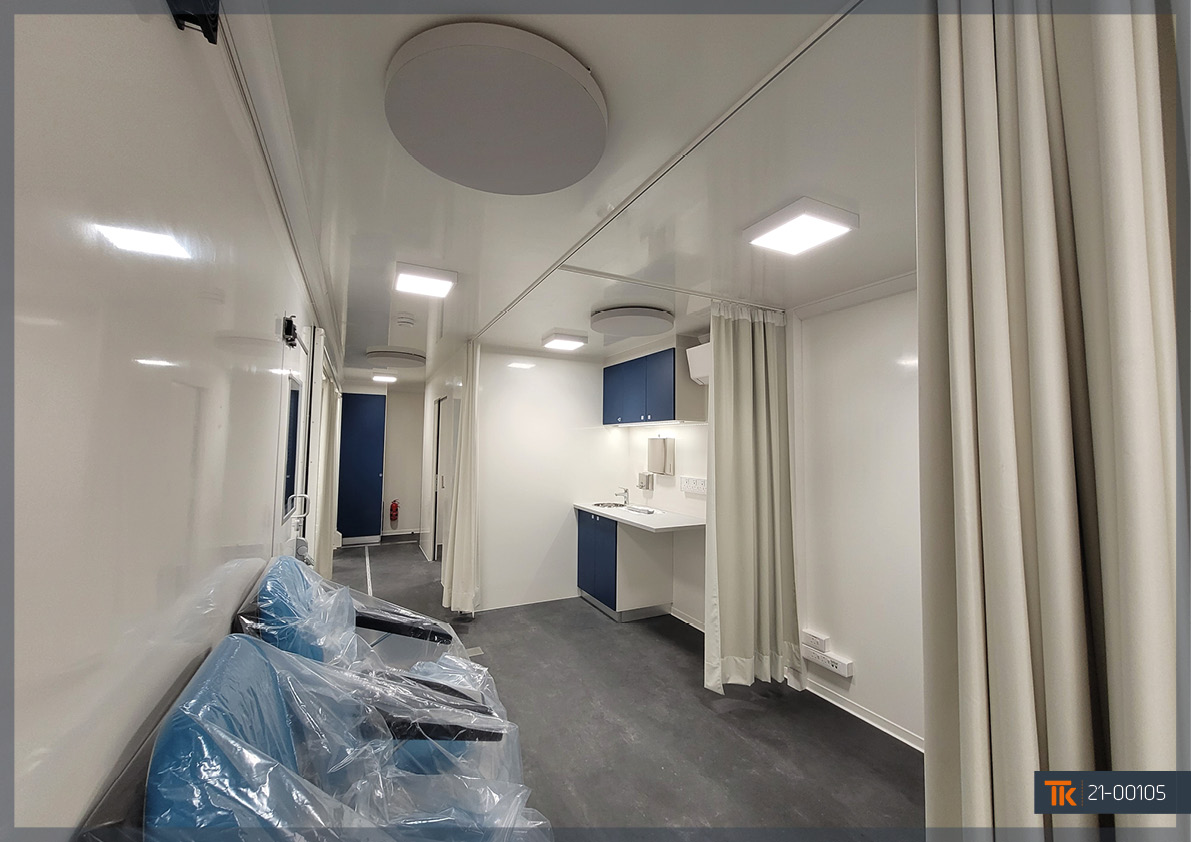
Mobile clinics to reach out to the population as part of nutrition campaigns -
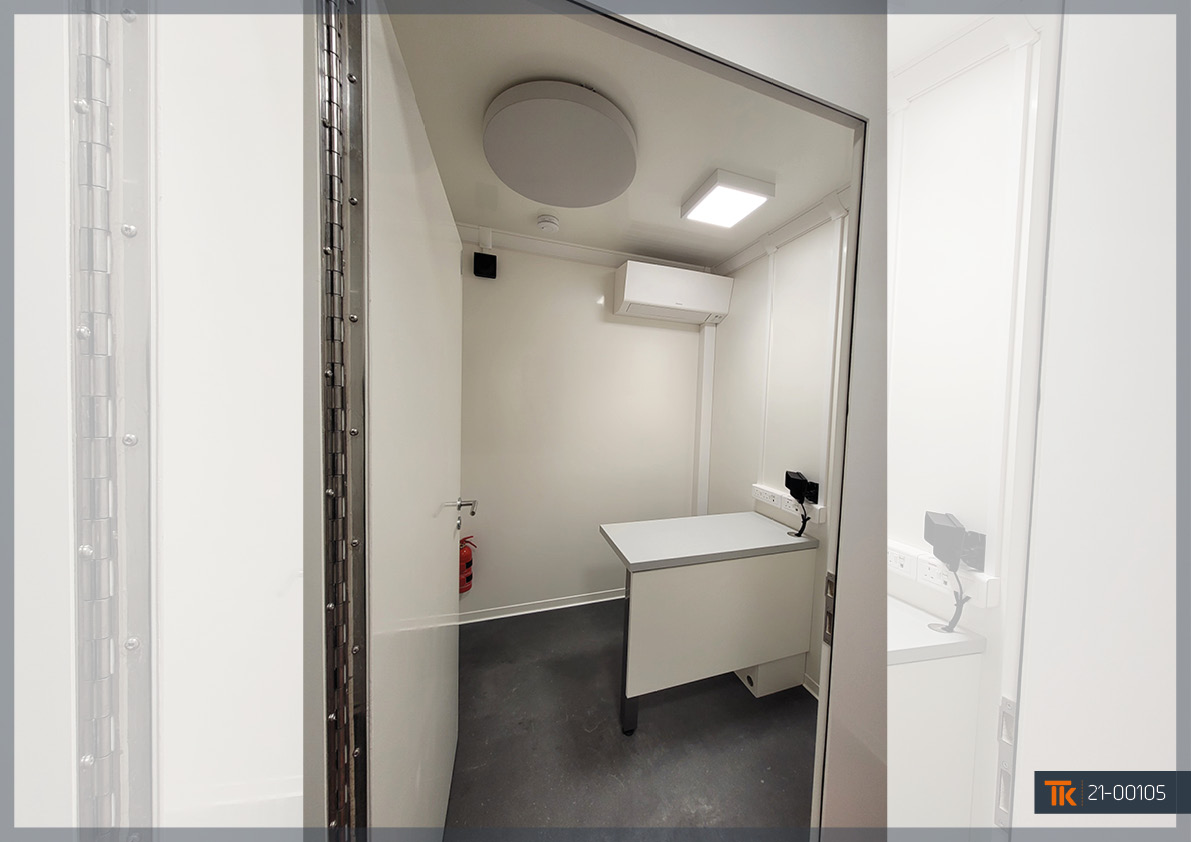
Tailor-made mobile clinics ready for equipment integration by the customer -
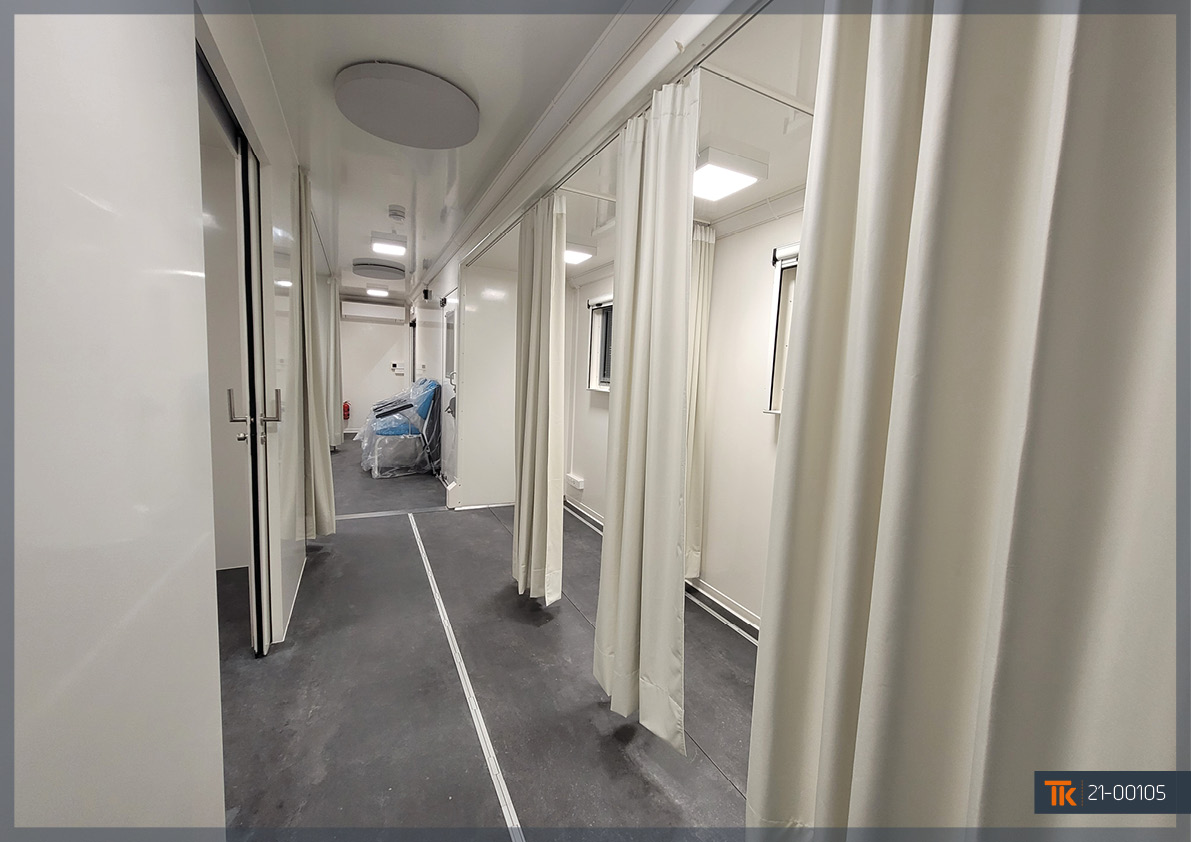
1-metre hydraulic extension to increase the volume of the mobile unit

